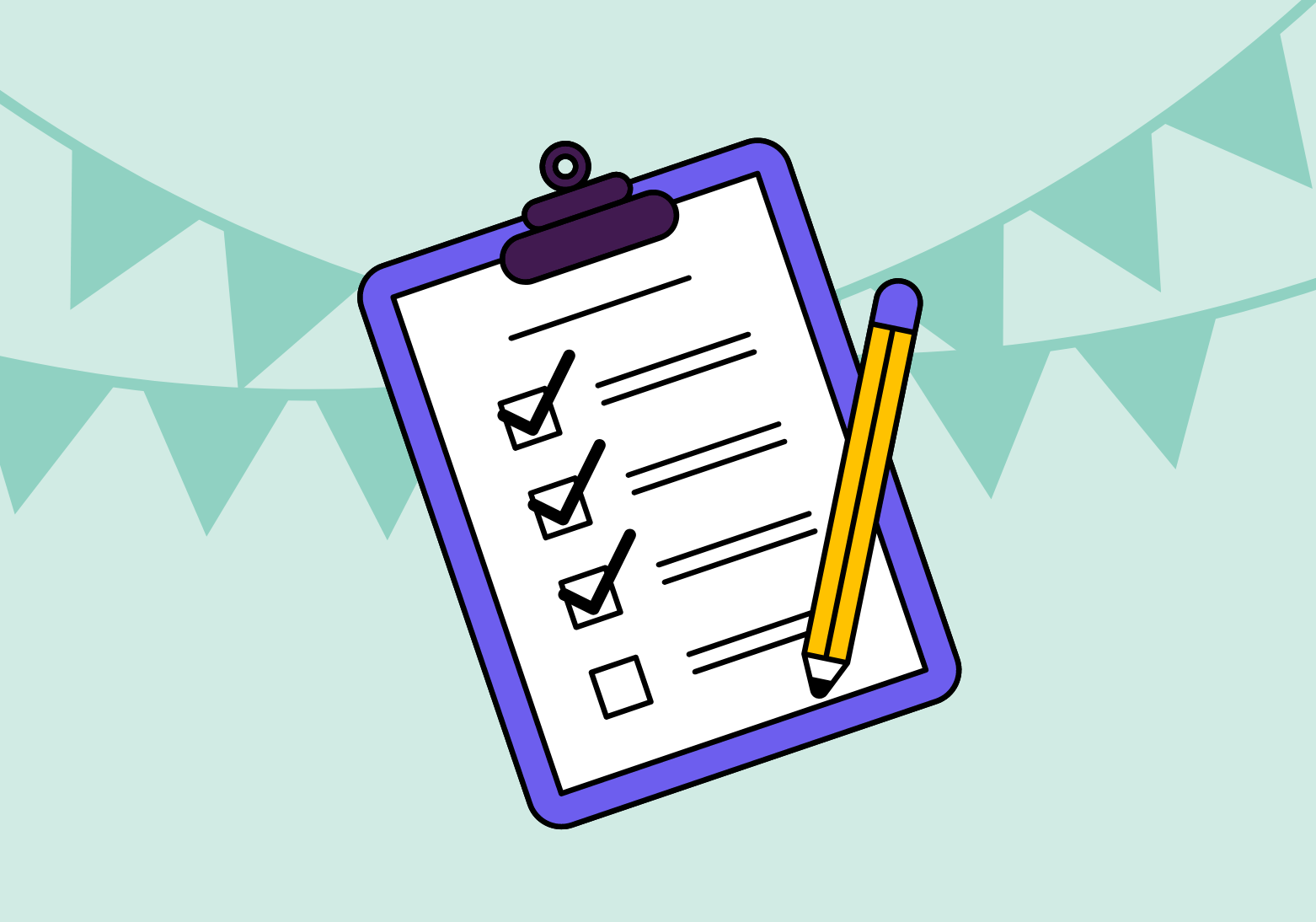
Event Planning Checklist: Everything You Need to Know
 So, you’ve been tasked with organizing an event, but where do you even start? Whether it’s a corporate conference, a wedding, a birthday bash, or a community gathering, event planning can be overwhelming. But fear not! We’ve got you covered with a comprehensive event planning checklist to ensure nothing falls through the cracks. Let’s dive in and make your event a resounding success!
So, you’ve been tasked with organizing an event, but where do you even start? Whether it’s a corporate conference, a wedding, a birthday bash, or a community gathering, event planning can be overwhelming. But fear not! We’ve got you covered with a comprehensive event planning checklist to ensure nothing falls through the cracks. Let’s dive in and make your event a resounding success!
 1. Define Your Event’s Objectives and Goals
1. Define Your Event’s Objectives and Goals
Before diving into the logistics, take a step back and clearly define the purpose of your event. Are you aiming to educate, celebrate, network, fundraise, or entertain? Understanding your objectives will guide your decisions throughout the planning process.
 2. Set a Realistic Budget
2. Set a Realistic Budget
Create a detailed budget, allocating funds to different aspects of the event, such as venue, catering, entertainment, and marketing. Stick to the budget throughout the planning process to avoid any financial surprises.
3. Choose the Perfect Date and Time
Consider the availability of key participants and target attendees. Research local holidays, competing events, and seasonal factors that might impact attendance. Once decided, lock in the date and time to move forward with other arrangements.
4. Select an Ideal Venue
Your venue sets the tone for the entire event. Choose a location that aligns with your event’s theme and accommodates the expected number of guests comfortably. Don’t forget to check for necessary permits or insurance requirements.
5. Assemble a Dream Team
Build a reliable event planning team or partner with trusted vendors and suppliers. Delegate responsibilities based on expertise and ensure clear communication among all involved.
6. Plan the Event Timeline
Create a detailed timeline that outlines the sequence of events leading up to and during the main event. This will help you stay on track and anticipate potential delays or bottlenecks.
7. Book Suppliers and Vendors
Secure contracts with vendors for catering, audio-visual equipment, decorations, and any other services required for your event.
8. Send Invitations and Manage RSVPs
Design and send out invitations well in advance, whether it’s through traditional mail, email, or online event platforms. Keep track of RSVPs to estimate the number of attendees accurately.
9. Organize Transportation and Accommodation
For larger events or destination gatherings, arrange transportation and accommodation options for attendees coming from afar.
10. Plan Event Logistics
Consider factors such as parking, signage, security, and emergency protocols. Make sure everything runs smoothly on the day of the event.
11. Create a Marketing and Promotion Strategy
Use various channels to promote your event, such as social media, email marketing, press releases, and partnerships with influencers or local media.
12. Prepare Event Materials and Signage
Design and print any required materials, such as programs, name tags, banners, and directional signage.
13. Confirm All Details with Vendors and Participants
As the event approaches, reconfirm all arrangements with vendors and remind participants about the event details.
14. Conduct a Run-Through and Rehearsal
Run through the event schedule with your team and vendors to ensure everyone is on the same page. Hold a rehearsal to iron out any potential issues.
15. Prepare for Unexpected Situations
Have contingency plans in place to handle any unforeseen circumstances that may arise during the event.
16. Set Up and Decorate the Venue
Arrive early on the event day to set up the venue and decorations. Ensure everything looks impeccable before the guests arrive.
17. Greet and Engage with Attendees
Welcome your guests warmly and engage with them throughout the event to make them feel appreciated.
18. Capture Memorable Moments
Hire a photographer or designate someone to capture the highlights of the event for future marketing and memories.
19. Handle Post-Event Cleanup and Wrap-Up
Once the event is over, clean up the venue, settle vendor payments, and send out thank-you notes or emails to attendees and participants.
20. Evaluate and Analyze the Event’s Success
Finally, conduct a post-event evaluation to gauge the success of your event. Collect feedback from attendees, sponsors, and your team to identify areas of improvement for future events.
With this comprehensive event planning checklist, you’re well-equipped to tackle any event, big or small. Remember to stay organized, communicate effectively, and remain flexible throughout the planning process. Good luck, and may your event be an unforgettable experience for everyone involved!
